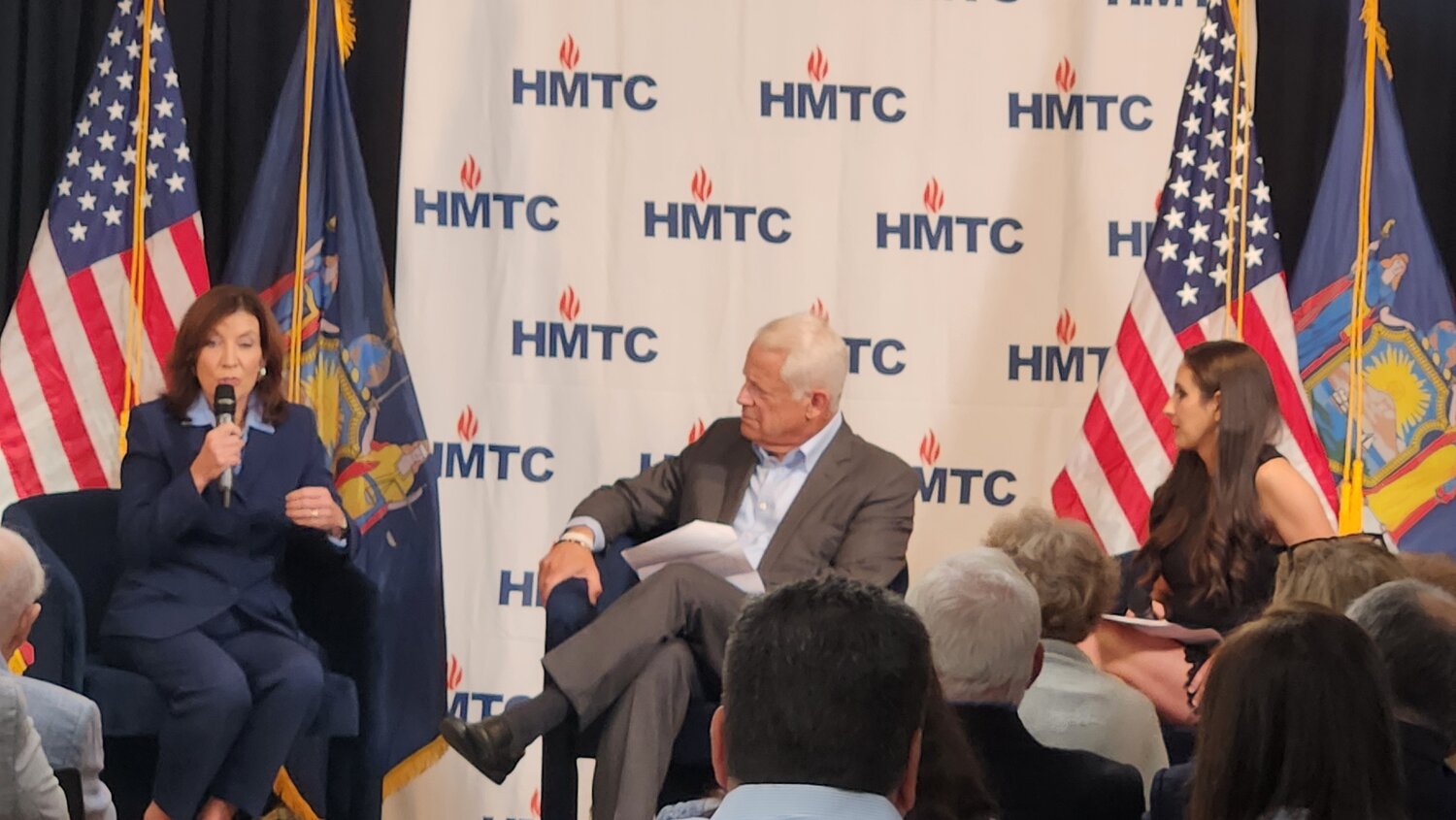Visiting Holocaust center, Hocul discusses antisemitism
Gov. Kathy Hochul visited the Holocaust Museum and Tolerance Center of Nassau County, in Glen Cove, on Sept. 6 for a Fireside Chat, at which she discussed her commitment to combating antisemitism.
The event, hosted by Steve Israel, former U.S. representative and director of the Institute of Politics and Global Affairs, alongside Dana Arschin, HMTC’s first Storyteller, focused on the rise of antisemitism in the state, home to the largest Jewish population outside of Israel.
“You speak with other governors routinely on both sides of the (political) aisle since they have similar challenges in their states with the rise of antisemitism and hate crimes,” Israel said to Hochul. “What’s the dialogue like? This is a national phenomenon.”
Although hate crimes have risen nationally in recent years, Hochul said New York is the epicenter of antisemitism, even more so since the Oct. 7 attacks when Hamas terrorists waged the deadliest attack on Jews since the Holocaust.
“They’re looking at us,” Hochul said about other state governors. “They want to see what we’re doing here because they don’t deal with anything of this scale at all.”
Nassau County went from 34 reported incidents of hate crimes in 2019 to 75 in 2023.
Hochul continues to focus on practical measures to fight antisemitism since the Oct. 7 attacks, particularly in schools and on college campuses. She highlighted a recent initiative to track Holocaust education in schools, noting that 100 percent of secondary and middle schools in New York are teaching Holocaust history, though she plans to dig deeper to ensure it is being taught comprehensively and consistently.
“I’m going to ask the next series of questions,” Hochul said. “Is it taught once in four years? Is there a course? Is it part of a history class? I want the data, I want the proof, and I’ll continue raising this question.”
Hochul also addressed the rise of antisemitism on college campuses and how her administration is proactive in tackling the issue. She sent a letter to all New York college presidents last year, warning them that they would be in violation of state and federal human rights laws if they allowed discrimination or harassment against any student. The governor also mentioned working closely with Jonathan Lippman, former Chief Judge of the New York Court of Appeals, who has been conducting a survey to better understand the culture on campuses and how to address antisemitism more effectively.
“Every school should be a tolerance center,” Hochul said. “That’s what we should be teaching our young people — tolerance for everyone and embracing it. This is what makes New York so fascinating and exciting, and those who don’t honor that and respect it, maybe New York isn’t their home.”
Rabbi Irwin Huberman of Congregation Tiferith Israel said after the event that there is a need for Holocaust education beyond traditional methods. Huberman reflected on his times speaking with youth, both Jewish and non-Jewish, about the Holocaust. “The connection needs to be made that antisemitism is not something that was limited to the early 1940s,” he said. “It is ongoing, and it continues to this day.”
“But the important thing is not so much that it’s being taught, but that there be some type of review or testing of how much the messages and the and the impact of has been absorbed by students,” Huberman continued. “It’s one thing to read things off the page, but has it affected the perception of students and how they view not only the Holocaust but hatred of all sorts. What I’d like to see is a bit of an outcome review of how much of that has resonated afterwards with students. That’s maybe the next step.”







